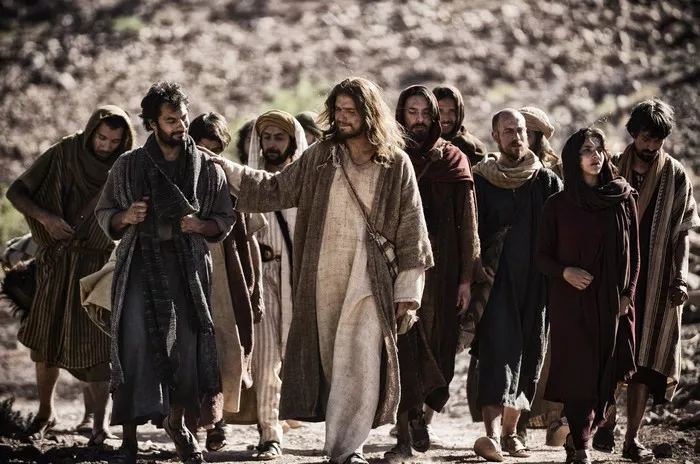The New Testament, a collection of Christian sacred texts, introduces us to various figures whose lives and teachings have profoundly influenced Christianity. Among these figures is John, a prominent character known for his role in the Gospels and beyond. In this article, we will delve into the identity of John as depicted in the New Testament, exploring his significance, contributions, and enduring legacy.
John appears prominently in the New Testament, primarily in the Gospels of Matthew, Mark, Luke, and John. He is commonly referred to as John the Baptist or John the Forerunner, to distinguish him from other Johns mentioned in the Bible. His birth, ministry, and relationship with Jesus Christ are central themes in the New Testament narratives.
Early Life and Background
According to the Gospel accounts, John the Baptist was born to elderly parents, Zechariah and Elizabeth, who were both descendants of Aaron, the first High Priest of Israel. His miraculous conception was announced by the angel Gabriel to his father Zechariah, who initially doubted the message due to his advanced age. As a result of this doubt, Zechariah was struck mute until John’s birth.
John spent his early years in the wilderness, where he grew in stature and wisdom. He lived an ascetic lifestyle, wearing garments of camel’s hair and subsisting on a diet of locusts and wild honey. His austere existence mirrored the prophetic tradition of figures like Elijah, whose spirit he was said to embody.
The Ministry of John the Baptist
John’s ministry commenced in the wilderness of Judea, where he preached a message of repentance and baptism for the forgiveness of sins. Multitudes flocked to hear him, drawn by his fiery rhetoric and uncompromising call to righteousness. He denounced the religious leaders of his time, including the Pharisees and Sadducees, accusing them of hypocrisy and warning of impending judgment.
Central to John’s ministry was his proclamation of the coming Messiah, whom he identified as Jesus of Nazareth. John baptized Jesus in the Jordan River, an event marked by the descent of the Holy Spirit in the form of a dove and the voice from heaven declaring, “This is my beloved Son, in whom I am well pleased.” This pivotal moment affirmed Jesus’ divine identity and inaugurated his public ministry.
Relationship with Jesus Christ
John’s relationship with Jesus Christ is a cornerstone of the New Testament narrative. As the forerunner of the Messiah, John prepared the way for Jesus’ ministry by proclaiming his arrival and baptizing him. Despite his own popularity, John humbly acknowledged Jesus’ superiority, declaring, “He must increase, but I must decrease.”
John recognized Jesus as the Lamb of God who takes away the sin of the world, affirming his role as the sacrificial Savior foretold by the prophets. He bore witness to Jesus’ divinity, proclaiming him to be the Son of God and the fulfillment of Messianic prophecy. Their relationship was characterized by mutual respect and divine purpose, with John faithfully fulfilling his role as the herald of Christ’s kingdom.
Imprisonment and Death
John’s outspoken criticism of King Herod Antipas and his unlawful marriage to Herodias, the wife of his brother Philip, eventually led to his imprisonment. While incarcerated, John continued to proclaim the message of repentance, even sending his disciples to inquire about Jesus’ ministry.
Herodias seized the opportunity to eliminate John, persuading Herod to have him executed. Despite Herod’s reluctance, he ultimately ordered John’s beheading at the request of Herodias’ daughter, who had danced for him at a banquet. John’s martyrdom marked the tragic end of his earthly ministry but served to confirm his commitment to truth and righteousness.
Legacy and Influence
John’s legacy extends far beyond his earthly life, enduring through the centuries as a symbol of prophetic courage and devotion to God. His uncompromising message of repentance continues to resonate with believers, challenging them to turn away from sin and embrace the kingdom of God.
In Christian tradition, John is revered as a saint and a prophet, honored for his pivotal role in preparing the way for Jesus’ ministry. His feast day is celebrated on June 24th, commemorating his birth, which is believed to have occurred six months before Jesus’. Throughout art, literature, and theology, John remains a central figure, inspiring countless individuals to seek spiritual renewal and transformation.
Conclusion
John’s significance in the New Testament cannot be overstated. As the forerunner of Jesus Christ, he played a crucial role in preparing the hearts of people for the arrival of the Messiah. Through his fearless preaching and unwavering commitment to righteousness, John left an indelible mark on Christian history, reminding believers of the importance of repentance, humility, and faithful witness. Though his earthly life ended in martyrdom, his legacy lives on, inspiring generations to embrace the message of salvation and the hope of eternal life in Christ.
FAQs:
What is John known for in the New Testament?
John is known for being John the Baptist or John the Forerunner, a figure who prepared the way for Jesus Christ by preaching repentance and baptizing people in the Jordan River.
What is John about in the New Testament?
In the New Testament, John is primarily about his role as the herald of Jesus Christ, proclaiming his arrival as the Messiah and baptizing him in the Jordan River.
Why is John so important to Jesus?
John is important to Jesus because he fulfilled the prophecy of preparing the way for the Messiah. He recognized Jesus’ divine identity, baptized him, and declared him to be the Lamb of God who takes away the sin of the world. Additionally, John’s ministry affirmed Jesus’ own mission and served as a crucial link between the Old Testament prophetic tradition and the inauguration of the new covenant.


